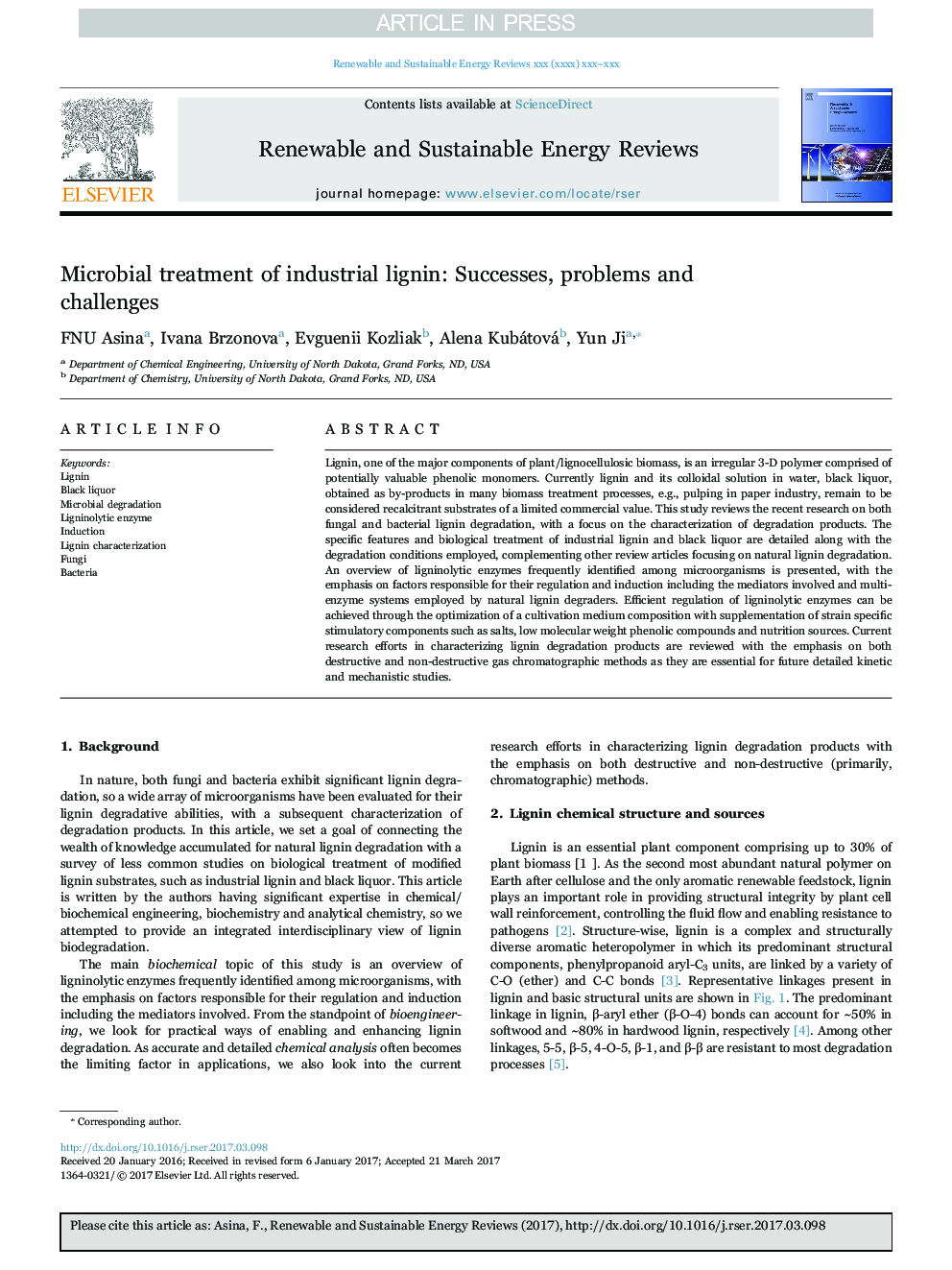| Article ID | Journal | Published Year | Pages | File Type |
|---|---|---|---|---|
| 5483002 | Renewable and Sustainable Energy Reviews | 2017 | 27 Pages |
Abstract
Lignin, one of the major components of plant/lignocellulosic biomass, is an irregular 3-D polymer comprised of potentially valuable phenolic monomers. Currently lignin and its colloidal solution in water, black liquor, obtained as by-products in many biomass treatment processes, e.g., pulping in paper industry, remain to be considered recalcitrant substrates of a limited commercial value. This study reviews the recent research on both fungal and bacterial lignin degradation, with a focus on the characterization of degradation products. The specific features and biological treatment of industrial lignin and black liquor are detailed along with the degradation conditions employed, complementing other review articles focusing on natural lignin degradation. An overview of ligninolytic enzymes frequently identified among microorganisms is presented, with the emphasis on factors responsible for their regulation and induction including the mediators involved and multi-enzyme systems employed by natural lignin degraders. Efficient regulation of ligninolytic enzymes can be achieved through the optimization of a cultivation medium composition with supplementation of strain specific stimulatory components such as salts, low molecular weight phenolic compounds and nutrition sources. Current research efforts in characterizing lignin degradation products are reviewed with the emphasis on both destructive and non-destructive gas chromatographic methods as they are essential for future detailed kinetic and mechanistic studies.
Keywords
Related Topics
Physical Sciences and Engineering
Energy
Renewable Energy, Sustainability and the Environment
Authors
FNU Asina, Ivana Brzonova, Evguenii Kozliak, Alena Kubátová, Yun Ji,
